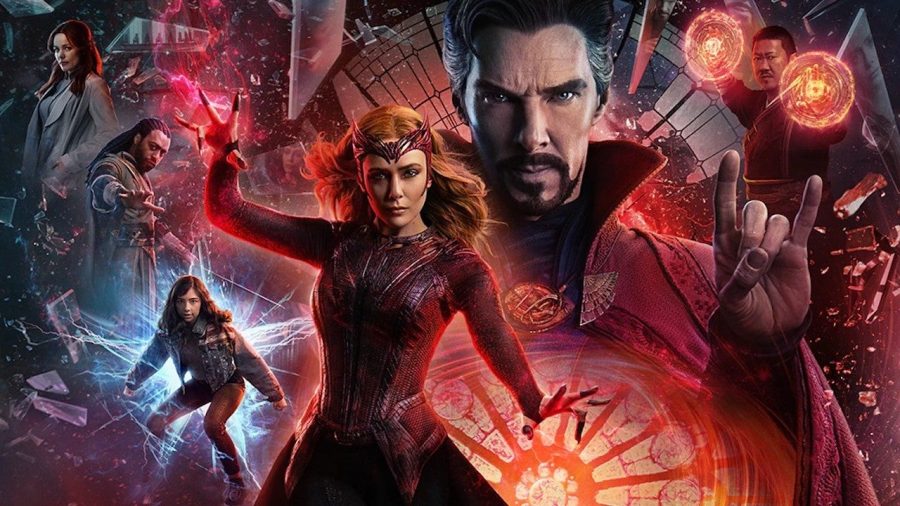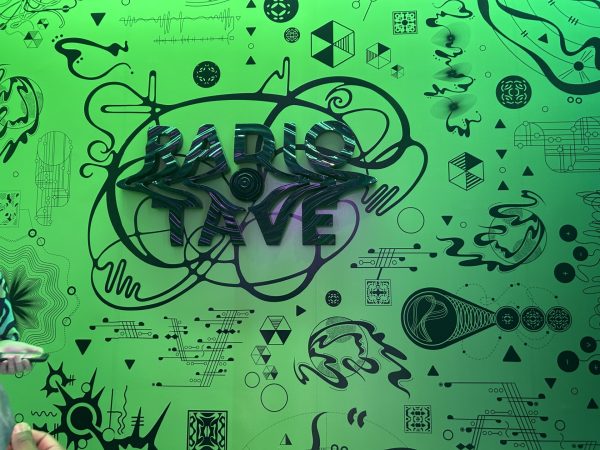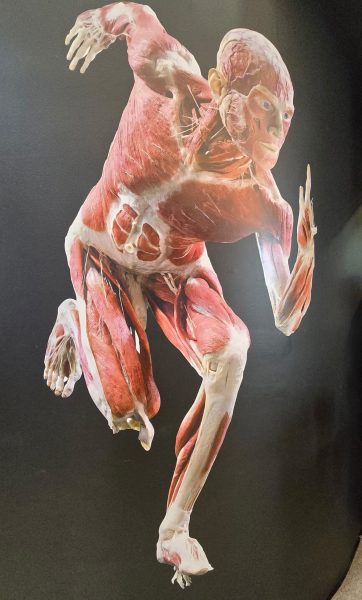Doctor Strange in the Multiverse of Madness is not a Doctor Strange movie
Doctor Strange plays second fiddle in his second film.
[Spoiler Alert: This review contains spoilers for Doctor Strange in the Multiverse and previous Marvel Cinematic Universe (MCU) properties.]
Spider-Man managed to get a whole trilogy in the time it took for the sequel of 2016’s Doctor Strange to be released. With six years of anticipation for one of my favorite heroes (who doesn’t love Benedict Cumberbatch?), my expectations for Doctor Strange in the Multiverse of Madness were high. There were so many interesting plotlines from the first movie and subsequent Doctor Strange appearances that this movie could follow. That’s why I left the theater opening night slightly disappointed: I had just watched a Scarlet Witch movie.
Don’t get me wrong, I think Wanda Maximoff, the Scarlet Witch, is a fascinating character. She has been through so much anguish, from the death of her parents and brother to having to kill her boyfriend in a fruitless attempt to save the universe. Elizabeth Olsen portrays Maximoff beautifully as she crosses the line of being a protective mother to a deranged one. Seriously, Olsen’s performance was probably the highlight of the movie. Unfortunately, it overshadowed Cumberbatch, and in that sense, Strange’s role. Although Strange has more screen time, the looming presence of Maximoff is the driving force behind the movie. It almost seems as if the most important prequel to have watched was Wandavision, the nine-episode television series from last year that follows Maximoff’s mental break, rather than Doctor Strange.
With over five hours of runtime, Wandavision effectively gave Maximoff two movies of development. Prior to that, she had never had a stand-alone piece of media. The show establishes why Maximoff becomes the ruthless antagonist in Doctor Strange in the Multiverse, but I believe that a stand-along Scarlet Witch movie would have made more sense for this narrative. Maximoff’s descent into villainy is a natural extension of her struggles in the show. Plus, Wandavision was a massive commercial success. It garnered a fanbase outside the usual Marvel sphere, so there would have been a huge audience for the movie. Although both characters use forms of magic, combining Strange’s story with Maximoff created a product that wanted to do too much. It failed to flesh out the panoply of characters it threw at the audience. Most importantly, it didn’t live up to the expectations set up by Doctor Strange.
The first Doctor Strange movie was the MCU’s way of introducing the mystic side of superheroes. There had already been magic, but Doctor Strange fleshed out how the system truly worked. It was a breath of fresh air into a universe where the good guys solved every problem by physically beating up the bad guys. Instead, Strange, who was a neurosurgeon before experiencing a life-altering accident, uses his brains to outsmart the villain. One of the antagonists in the first film is Dormammu, a multi-dimensional god-like creature, who wants to conquer Earth. Strange traps him in an infinite time loop, essentially annoying him until he agrees to Strange’s demands. Although this saves the world, Mordo, a sorcerer who taught Strange, believes that Strange was overstepping his bounds and ignoring the consequences of defying nature. The movie ends with a teaser of Mordo taking away the powers of sorcerers who are misusing them.
Given this setup, I assumed that Doctor Strange in the Multiverse of Madness would delve more into this facet. Unfortunately, all we were given was a different Mordo in the multiverse. Even the consequences of Strange’s actions in Spider-Man: No Way Home were glossed over. Rather than focusing on the problems that Strange himself has created, the movie introduces a new MacGuffin (“an object, event, or character in a film or story that serves to set and keep the plot in motion despite usually lacking intrinsic importance”) and furthers Maximoff’s story.
Because of the limited attention on Strange, I also found his character development to be lacking. The first movie saw him transform from an arrogant neurosurgeon to a slightly less arrogant and more altruistic sorcerer. His subsequent movie appearances reinforced these teachings of benevolence. While he learns how to let go of the past in the Multiverse of Madness, this development seemed like a minor subplot at best. Strange is largely the same, exhibiting the same carelessness about magic as he has always had. He gains a third eye as a consequence of reading the Darkhold, but it seems that he can simply hide it, so it isn’t even a major concern.
Even worse was the characterization of America Chavez, as this movie was her superhero debut. Chavez has the power to travel between multiverses, which is the reason for the movie’s title rather than the events of Spider-Man: No Way Home (given the multiversal hijinks of the latest Spider-Man film, I would have expected it to play a role). Chavez’s abilities are very interesting, but she is pigeonholed into the MacGuffin I referred to earlier: Chavez’s importance in the film is her power, and that’s it. If she were replaced with a magical lamp with the same abilities, nothing would change. All she gets is a ten-second sob story about her moms. I’m not bashing the actress Xochitl Gomez; I just wish that she was given better material to work with.
Despite these misgivings, I didn’t hate the movie. In fact, I would totally watch it again. While I know plenty of people who were disappointed by it, just because it wasn’t what I had wanted it to be doesn’t make it inherently bad. The Illuminati cameos were a delight, and I enjoyed the fact that Christine Palmer, Strange’s love interest in the first film, was more fully fleshed out. Instead of being a one-dimensional damsel in distress, the Palmer in this movie had more agency. I also appreciate how Strange didn’t get back together with Palmer. It showed that the good guy doesn’t always get the girl and how there are sometimes fundamental differences in character that make relationships incompatible.
At the end of the day, I think that Doctor Strange in the Multiverse of Madness suffers from the same thing as the other recent MCU properties. The writers are trying to pack in too much content, and the characters suffer at this expense. Sometimes this leads to fun cameos, but other times it just leaves me wanting more. In this case, Maximoff ended up eclipsing Doctor Strange in what was supposed to be his shining film.
Your donation will support the student journalists of Carnegie Vanguard High School. Your contribution will allow us to cover our annual website hosting costs and fund field trips, competition fees, and equipment. We appreciate your support!

Hi, I'm Jessica! I am a senior and one of the Feature Editors for Upstream News. I love dance, Marvel, and cats.








Brooke Ferrell • May 23, 2022 at 2:26 pm
This is a wonderful review! I enjoyed your breakdown of the pros and cons of the movie, and I feel like you were scrupulously fair with your analysis. Thank you!
Atahan Koksoy • May 20, 2022 at 2:30 pm
This is a great review. I like that it covers so much ground and addresses a lot of aspects of the movie. I haven’t seen the film myself, but I know about the plot and understand that people were a bit disappointed. Thank you for talking about the goods and the bads of the movie in this way.